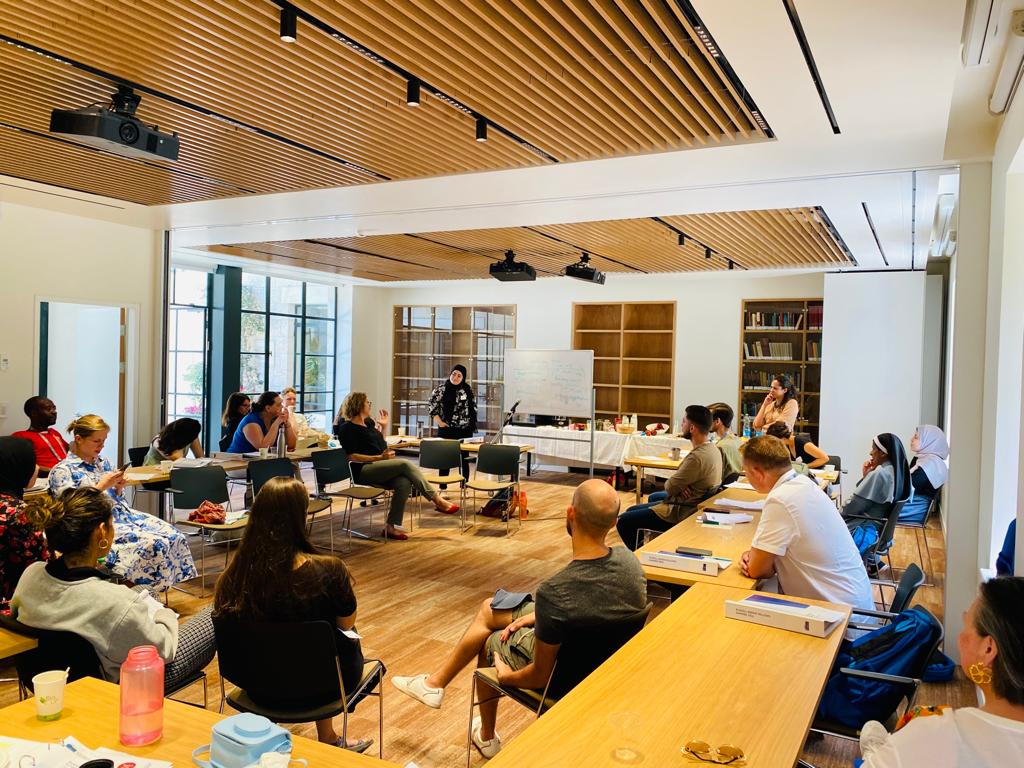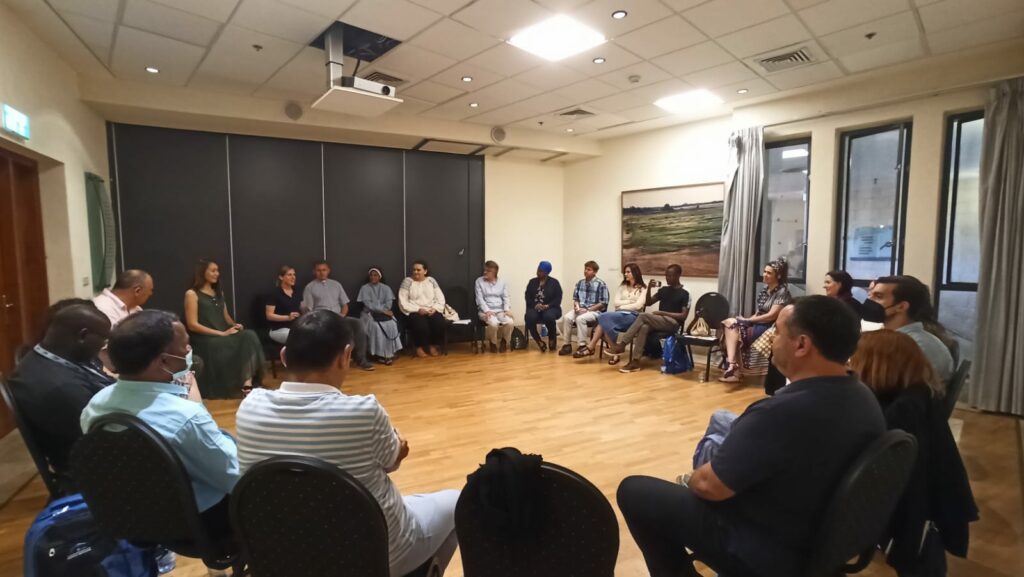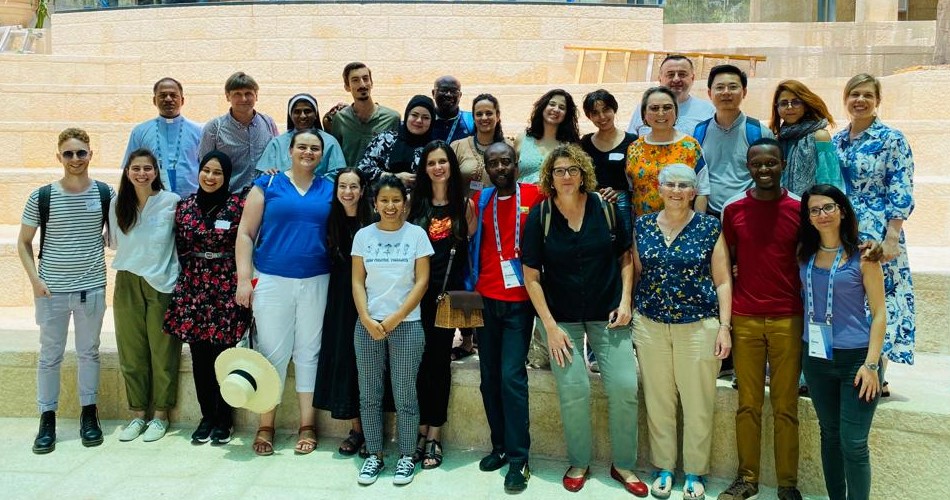Every year, Russell Berrie Fellows visit Israel for an intensive 11-day trip that combines an academic seminar at the Shalom Hartman Institute, practical workshops and visits to holy sites. Due to the pandemic, it was not possible for Cohort XIII to travel to Israel last year. Only this year, both Cohort XIII and Cohort XIV of Russell Berrie Fellows had the chance of travelling to Israel between from June 12 to June 22. The Israel study tour concluded their experience as Russell Berrie Fellows and introduced them to the Network of John Paul II Leaders for Interreligious Dialogue.
The time in Israel allows Fellows to learn more—among other things—about the lived experiences of dialogue in the Holy Land. This year the Fellows were part of two practical workshops offered by the Rossing Center for Education and Dialogue and the second by Sia’h Shalom.
On Friday June 17th, a team of students and facilitators, both Israelis and Arabs, who usually run or attend programs organized by the Rossing Center at their universities joined the Russell Berrie Fellows. They introduced two projects: Healing Hatred and Meeting Place. These projects use different methods that enable participants to listen to one another empathetically and address different aspects shaping their personal and national identities, including faith, beliefs, tradition, culture and politics. Healing Hatred is an innovative model for interreligious dialogue based on the tools of spiritual counseling to allow space to communicate about core spiritual and moral dilemmas, while Meeting Place is a theme-based text study and discussion with Jewish, Christian and Muslim sources. The workshop offered the chance not only to experience the two dialogue practices developed by the Rossing Center but also to interact with young people who live in Jerusalem and who, despite the challenges, decide to walk the path of dialogue.”

On Sunday June 19th, the Fellows were active participants in the second workshop organised by Sia’h Shalom (Talking Peace), an organization dedicated to constructive engagement with, and inclusion of, religious communities and individuals in Israeli-Palestinian peace efforts. After an introduction about the philosophy of the organization, the leaders led the group through a text study of religious sources and then invited the Fellows to discuss conflicts in their own countries of origin and gave a practical demonstration of how they lead discussions about such sensitive issues.

The opportunity to see how different organizations experience and facilitate dialogue in Jerusalem and the surrounding areas is a great chance for the Russell Berrie Fellows who come from all over the world and who then implement their projects of dialogue in their own countries.

